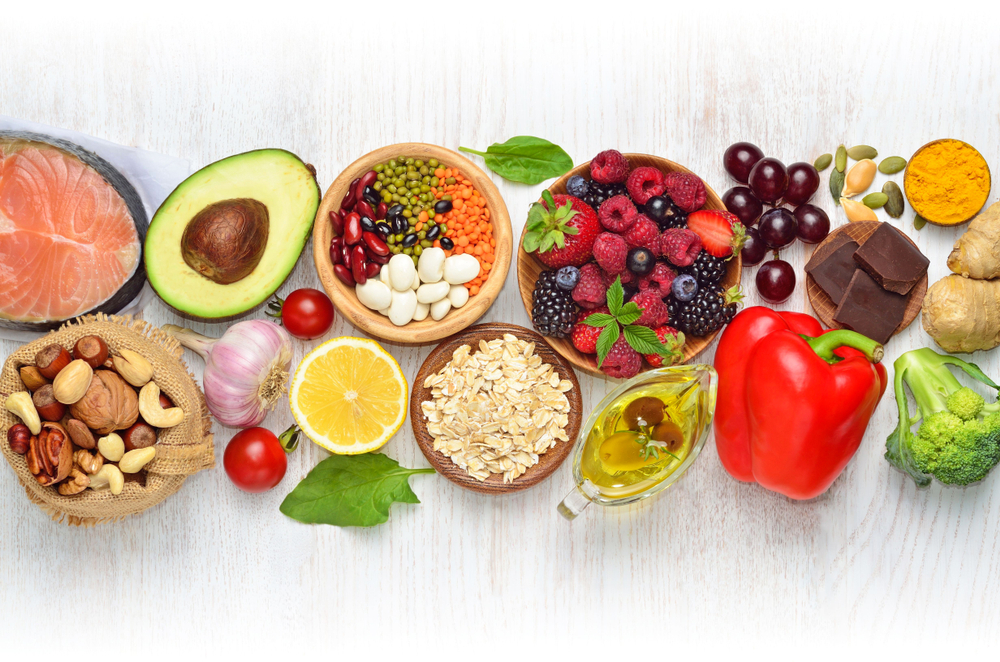
Nutrition During Pregnancy
You know you need to be looking after your body to help your baby to grow during pregnancy, but what should you eat? What’s healthy, and what’s not? Are you eating for two, or is a small increase in calories “good enough”?
Nutrition during pregnancy
It is always important to eat a balanced diet, but even more so while you are pregnant. The food you eat is the main source of nutrients for your growing baby. Many women don’t get enough iron, folate, calcium, vitamin D, vitamin Bs, or protein. ACOG (American College of Obstetricians and Gynecologists) guidelines show that a balanced diet that includes fruits, vegetables, whole grains and proteins should provide enough nutrients and vitamins for
you and your baby. A diet of fresh foods, with less processed, sugary foods will help you and baby during your pregnancy. Also, be sure to look into a multivitamin that is safe for you to take during your pregnancy to help supplement any of the vitamins and minerals you may be missing in your normal diet. Your doctor may be able to assist with a prescription, or he/she may recommend a good OTC brand.
Important vitamins and minerals
Your body needs higher amounts of these important vitamins and minerals during pregnancy. The amounts below are taken from the ACOG guidelines around how much of each vitamin and mineral you and your baby need during pregnancy.
Calcium is important for strong bones and teeth. It can be found in dairy products, leafy green vegetables and fish. During pregnancy, you need 1000mg daily.
Folate, also known as folic acid, is very important during pregnancy as it helps with production of blood and protein. Folate can be found in leafy greens, legumes, liver and orange juice. Your daily intake should be 400 micrograms.
Vitamin B12 and B6 help form red blood cells, help to maintain your neural system. These can be found in animal products such as liver, meat, fish, poultry and milk. You need 2.6 micrograms of vitamin B6 and 2.6 micrograms of B12 daily.
Iron is important for red blood cells delivering oxygen to the baby. You will find this in lean meats, dried beans and peas. Daily, you will need 27mg.
Vitamin C is good for healthy gums, teeth and absorption of iron. Great sources are from citrus fruits, broccoli, tomatoes and strawberries. During pregnancy, you need 85mg daily.
Vitamin A is important for healthy eyesight and bone growth. It is found commonly in carrots, leafy vegetables, and sweet potatoes. You will need 770 micrograms during pregnancy.
Weight gain is normal and important
It is normal to gain weight during pregnancy, and it is very important. If you gain too little or too much, this may impact the health of both you and your baby. Most women should only be eating about 300 calories extra per day, not eating for two and doubling your calories.
ACOG and The Institute of Medicine recommend if you are currently underweight to healthy weight, a gain of 20-35 lbs. is normal and within a good range. If you were overweight pre-pregnancy, a weight gain of 10-25 lbs. is within normal range. However, discuss this with your doctor to ensure you are gaining enough, but not too much weight to keep you and baby healthy.
Little changes can go a long way
It may seem overwhelming to try include all of these nutrients and minerals into your diet, but slowly look at each one and see how you can incorporate them into your daily diet. This will your baby to grow well ,and it will help you to have the right nutrients to look after your body.
Your doctor can help to give you more information on the right nutrition guidelines for you and your pregnancy.


